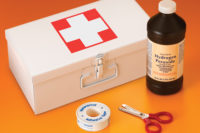Exercise: A program you can live with
 Source: Harvard Medical School
Source: Harvard Medical School
Take the "work" out of workouts with a fitness plan that "fits" you, and use it to gain a healthier, more vigorous, and longer life."
If exercise is so good for us (and it is — I'll get to that shortly), then why do we find it so hard to exercise regularly? It wasn't always that way. In grade school, you probably couldn't wait for recess. It was a time to walk, run, jump, and be outside. You were exercising and enjoying every minute of it.
Now it's more of a chore. And that's too bad because regular exercise can add more than three years to your life. Exercise lessens your risk of developing heart disease and having a stroke. It lowers blood pressure, reduces the risk of developing certain cancers, strengthens bones, protects joints, and keeps your mind sharp.
Put the fun back into your exercise. Create a well-rounded program that fits your life and that you can stick with, gives you recess without the bell.
Look to authoritative resources such as Harvard Medical School’s “Exercise" special health report to answer fundamental questions:
- How much exercise do I need?
- How often should I exercise?
- How long should an exercise session be?
- What exercise "mix" gives the greatest benefits?
The report explains what "moderate" exercise is, how "vigorous" exercise can reduce your time commitment, how to make workouts fit your schedule, and the pros and cons of being a "weekend warrior."
You need an action plan. Map out an effective, enjoyable exercise program. Learn how many calories you burn through different activities. Discover great strategies to keep your routine fresh. Aerobic exercise should be the centerpiece of your fitness program, while you also work in ever-important bouts of strength training.
Exercise provides complete strength and stretching routines with 16 exercises you can do at home or on the road. You'll get money-saving guidance for buying equipment, selecting a health club, or setting up a home gym. You'll learn what single exercise machine offers the best total-body workout. You'll also get tips for avoiding injuries, measuring your gains, rewarding your progress, and more.
To your good health,
Anthony Komaroff, M.D.
Professor of Medicine, Harvard Medical School
Senior Physician, Brigham and Women's Hospital
Editor in Chief, Harvard Health Publications
Looking for a reprint of this article?
From high-res PDFs to custom plaques, order your copy today!





